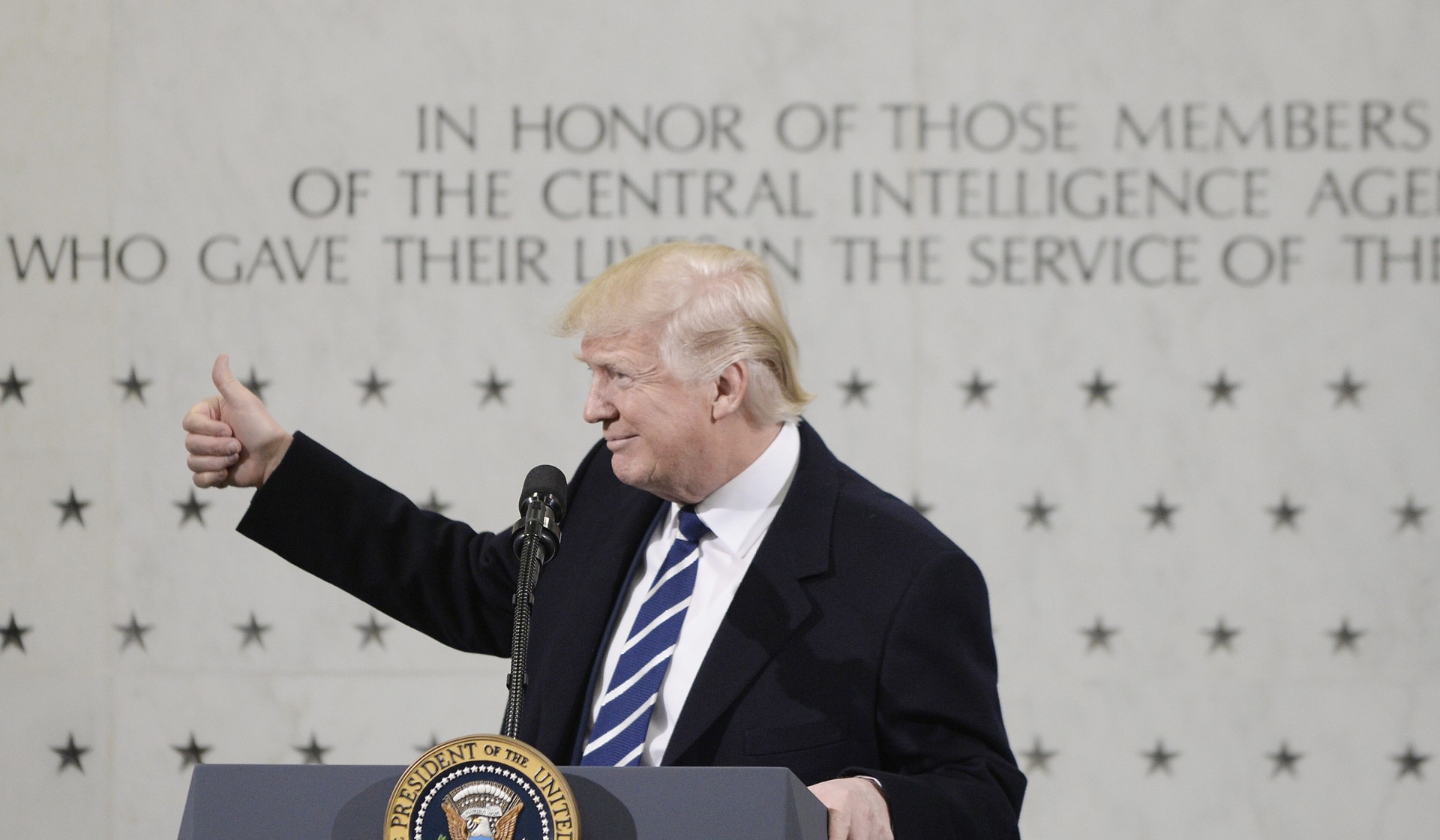What the CIA will look like if Trump gets his way
The country's premier intelligence agency finds itself at a crossroads — and in the crosshairs of a president who has long railed against his 'deep state' adversaries


There is perhaps no clandestine institution on Earth more storied than the CIA, but over the past three weeks, the agency's goals have shifted significantly as President Donald Trump continues his unprecedented efforts to reshape the federal government. Less than a month into the Trump administration, the Central Intelligence Agency finds itself in the president's rapidly changing crosshairs, joining the many federal programs that have offered employees legally dubious buyout offers. As Trump, who has long railed against a supposed "deep state" of nebulous law enforcement and national security interests, casts his attention toward the CIA, experts are left wondering what the world's premier spy enterprise might look like should the president realize his vision.
Infusing the agency with 'renewed energy'
The buyout offers are a "signal to those who oppose Trump's agenda to find work elsewhere," said The Wall Street Journal. The goal is to "bring the agency in line with President Trump's priorities, including targeting drug cartels," and to have a workforce suited to the agency's "new goals, which also include Trump's trade war and undermining China." More broadly, Trump's vision for the agency is to have a "greater focus on the Western Hemisphere."
The buyouts and renewed focus on CIA priorities are part of a "holistic strategy to infuse the Agency with renewed energy," a CIA spokesperson said to CBS News. The goal is to "provide opportunities for rising leaders to emerge, and better position the CIA to deliver on its mission." The decision to include the CIA in Trump's broader federal buyout initiative appears to have come from newly installed Director John Ratcliffe — a longtime Trump loyalist — who "personally decided he also wanted the CIA to be involved," CNN said. However, one source said to the outlet, the effort may be "far less sweeping" than for agencies "not considered to be doing national security work." For instance, "some employees," such as those "handling high-priority tasks," would "not be eligible for the offer," said NBC News.
The Week
Escape your echo chamber. Get the facts behind the news, plus analysis from multiple perspectives.

Sign up for The Week's Free Newsletters
From our morning news briefing to a weekly Good News Newsletter, get the best of The Week delivered directly to your inbox.
From our morning news briefing to a weekly Good News Newsletter, get the best of The Week delivered directly to your inbox.
'Radical, unplanned and self-contradictory'
The CIA's overarching mission of protecting U.S. interests "requires depth of thought, strategy and long-term planning," said The Atlanta Journal-Constitution. Trump's plan to remake the agency exhibits "none of those qualities," and is instead "reactive, poorly designed and likely to achieve the opposite of its stated goal." Already there is "panic within the broader national security community," said NPR. Experts are worrying about the possibility that "years of experience, talent and secrets could soon be heading out the door." It's still unclear whether other intelligence agencies would "follow suit with a buyout offer," said the Journal.
Crucially, none of the Trump administration's planned reforms "freeze the actual new and emerging threats" eager to "pounce on any perception of polarization or additional vulnerabilities," said the Robert Lansing Institute for Global Threats and Democratic Studies. It is "entirely possible," then, that a host of American adversaries "stand to benefit the most" from a pivot from "reasonable, dedicated, thoughtful and necessary reform and review toward a radical, unplanned and self-contradictory near-elimination of the intelligence agencies in their conventional sense."
A free daily email with the biggest news stories of the day – and the best features from TheWeek.com
Rafi Schwartz has worked as a politics writer at The Week since 2022, where he covers elections, Congress and the White House. He was previously a contributing writer with Mic focusing largely on politics, a senior writer with Splinter News, a staff writer for Fusion's news lab, and the managing editor of Heeb Magazine, a Jewish life and culture publication. Rafi's work has appeared in Rolling Stone, GOOD and The Forward, among others.
-
 Will Nigella be the secret ingredient to revive GBBO?
Will Nigella be the secret ingredient to revive GBBO?Talking Point Lawson will bring yet more ‘eye-twinkling double entendres’ to a show that some say has ‘lost its way’
-
 Is Alex Pretti shooting a turning point for Trump?
Is Alex Pretti shooting a turning point for Trump?Today’s Big Question Death of nurse at the hands of Ice officers could be ‘crucial’ moment for America
-
 The best dark romance books to gingerly embrace right now
The best dark romance books to gingerly embrace right nowThe Week Recommends Steamy romances with a dark twist are gaining popularity with readers
-
 Is Alex Pretti shooting a turning point for Trump?
Is Alex Pretti shooting a turning point for Trump?Today’s Big Question Death of nurse at the hands of Ice officers could be ‘crucial’ moment for America
-
 Trump’s ‘Board of Peace’ comes into confounding focus
Trump’s ‘Board of Peace’ comes into confounding focusIn the Spotlight What began as a plan to redevelop the Gaza Strip is quickly emerging as a new lever of global power for a president intent on upending the standing world order
-
 Trump sues JPMorgan for $5B over ‘debanking’
Trump sues JPMorgan for $5B over ‘debanking’Speed Read Trump accused the company of closing his accounts for political reasons
-
 ICE memo OKs forcible entry without warrant
ICE memo OKs forcible entry without warrantSpeed Read The secret memo was signed last May
-
 Washington grapples with ICE’s growing footprint — and future
Washington grapples with ICE’s growing footprint — and futureTALKING POINTS The deadly provocations of federal officers in Minnesota have put ICE back in the national spotlight
-
 DOGE shared Social Security data, DOJ says
DOGE shared Social Security data, DOJ saysSpeed Read The Justice Department issued what it called ‘corrections’ on the matter
-
 Halligan quits US attorney role amid court pressure
Halligan quits US attorney role amid court pressureSpeed Read Halligan’s position had already been considered vacant by at least one judge
-
 Can anyone stop Donald Trump?
Can anyone stop Donald Trump?Today's Big Question US president ‘no longer cares what anybody thinks’ so how to counter his global strongman stance?
